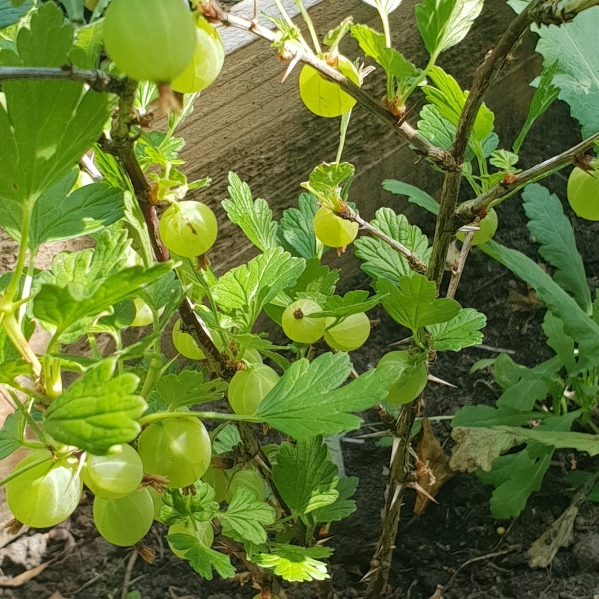
Ribes uva-crispa
Gooseberry
Gooseberry is a deciduous shrub that flowers in Spring, & in Summer produces lots of edible fruits. Gooseberry bushes are self-fertile, which means you do not need to grow more than one bush in order for fruit to be produced. They can also be grown as cordons.
-
Full sun
-
Occasional watering
-
Full Frost Hardy: 5F (-15°C)
-
Moist and free draining
Common name
Gooseberry
Latin name
Ribes uva-crispa
type
Fruiting Plant
family
Grossulariaceae
ph
5.5 - 7.5 Acid - Neutral
Plant & bloom calendar
-
Best time to plant
-
When to harvest
full grown dimensions
 1.20 M
1.30 M
1.20 M
1.30 M
Ribes uva-crispa
Gooseberry is a deciduous shrub that flowers in Spring, & in Summer produces lots of edible fruits. Gooseberry bushes are self-fertile, which means you do not need to grow more than one bush in order for fruit to be produced. They can also be grown as cordons.
Planting outdoors
From Early Autumn TO Late Autumn
Plant bare rooted plants asap after you receive in Autumn. Dig a hole twice the size of the spreaded roots, and mix well rotted compost with the soil, and plant the bush at the same depth, or a little lower. Firm in well, and mulch with compost.
Propagation by cuttings
From Mid Autumn TO Late Winter
Take hardwood cuttings of up to 3cm from this years growth, making a clean from above a shoot and remove any soft growth. Nearly fill a container with fine grit at the bottom, to enable free draining, and a suitable compost. Place the cutting, having dipped he end in a rooting compound first, with a third of the cutting showing.



























